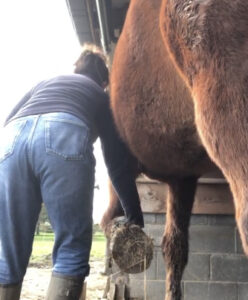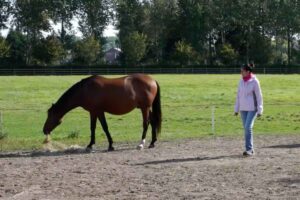Burn out how does it happens… Pleasure and displeasure between research and exhaustion. How to know when the burn out is there?
Emotions like depression, grief, aggression, frustration are the result of our (bad) time management. It would be about a past time, a present time or a future time (which would not happen fast enough).
Two elements are added to this dimension: trying to avoid pain and seeking pleasure.
Everything else is irrelevant. When I say “everything else” I think of professional, family or sentimental aspect. It does’t matter because the parameters mentioned above are involved in all these dimensions.
It is viscerally difficult for us to understand this notion of time because what we do is mainly motivated by searching pleasure or avoiding displeasure. This is how we do our learning. This is how we educate.
The pleasure can reside in your job …
And yet … even if you like what you do, you may feel exhausted.
The pleasure can reside in your family life …
And yet … even if you love your family life and your partner they sometimes can seem so exhausting …
So how do you tell the difference between an occasional episode of emptying and a real burnout?
Burnout is defined as mental and physical exhaustion, which was, mind you, the definition of a depression 15 or 20 years ago. It is when we have no energy, no envy and sometimes no intellectual or physical ability to invest in our daily lives.
What has changed in 20 years is not that we are more prone to disease. No. It is that our professional, family and even in love environment is invaded by devices, laptops and other smartphones giving us a sense of emergency.
Today we experience a form of dictatorship, week after week that leads us to hypervigilance, stress and exhaustion … all notions related to time management, the notion of pleasure / displeasure and the satisfaction of our basic needs.
Like us, horses do things for pleasure and avoid displeasure. The idea of giving a carrot as a reward and the whip as a punishment is widely used in this spirit and it works because they understand very quickly where their interest is … just like us.
On the other hand, giving food as a reward to a horse is a mistake since horses do not give each other food to congratulate each other. The reward at home is to stop. And here we have a lot to learn.
Horses in their natural state eat what they have in front of them. No blade of grass has ever escaped under the hooves of a horse! Food is available and their time management remains centered on what is.
On the contrary, the human being in the natural state has to run behind his food and his notion of time is that if he misses his target who fled before him, his notion of time is centered on what escapes him or could escape him.
There it is. We run because our reptilian brain tells us that this is what needs to be done. Either to have more pleasure, or to avoid displeasure. While we do not need to run anymore. For most of us, we are lucky enough to have a roof over our heads and something to eat every day.
We run because the alerts of our electronic environment lead us to believe that we will miss the prey, the pleasure, the satisfaction. Or avoid the predator, displeasure, or destruction.
So how do we know if our condition is a small transient decrease of energy or whether to rely on a medical diagnosis? Here are some small practical tests.
- Take breaks during the day
Burnout or depression comes from a lack of understanding of what the body is involved in all our processes and ignoring its needs to constrain unpleasure, or seeking to do even more leads to mental exhaustion – even for short-term results. Having opportunities to recharge your mental energy goes through the movement. Walk out, move and leave your desktop, laptop or phone behind you.
Because it is by taking distance from your tasks that the solutions come to you naturally.
Pay attention that these breaks are taken at the right time knowing that your energy is usually at the highest in the morning, where you can take up your challenges and be the most productive. Then rest. - Put your digital devices aside
Leave your work at the office! Nowadays we all carry an office in the back of our pocket. There are no more limits between the private and the professional as if we were physiologically attached to a single vital identity representation! While it is vital precisely that it remains compartmentalized. To return to my image of the hunter it is as if we were all still running behind an elusive prey. We would have died of exhaustion and hunger. But today it seems that the feeling of hunger no longer exists and that we are never satiated, as if we were still running behind an elusive prey.
Symbolically put your devices in a drawer from 20h and do not touch it until the next day. The world can turn without you for several hours, really … - Do something interesting
Instead of focusing on limiting or avoiding work outside office hours, plan relationship experiences. Make plans to introduce you to golf, tango or permaculture with a friend, cook with your spouse, be in touch with a living person in real life because it forces you to turn to a relationship goal (do something for fun together) versus an avoidance goal (do not check emails).
It is proven that even though this activity is more difficult than laying down in a couch with your remote control in hand, it will give you more energy than inaction aimed at rest .. - Take long weekends.
Feeling mentally and physically exhausted can also be a sign of holiday need. A break does not necessarily mean six weeks of vacation, or even two. The idea is to reduce stress. And of course without checking what is happening in the office or in your mailbox! - The why behind your choices
If your job responsibilities preclude immediate leave, focus on why you do what you do. Link your current mission to a larger personal goal – this project will help you … what results you expect, seek … Be aware however that it can work a day or two. If you have to stop working: do it! - Are you really exhausted?
If none of these strategies work, then you need to reconsider what you will be chasing. It may be that your job suits you without giving you a sense of meaning – so think about how to change the situation. It is also possible that your job will pump your energy … so you will have to rethink your career.
REMEMBER
- Put boundaries on your digital devices usage when you’re not working
- Take regular breaks into your days
- Focus on what’s important to you if your work obligations do not allow you to have long weekends
ON THE OTHER HAND :
- Do not read your emails during your weekends (long weekends or not)
- Get involved in relational activities that commit you to a goal that interests you
- Fatigue can be temporary, but if you feel ineffective every day, it’s time to rethink your career






